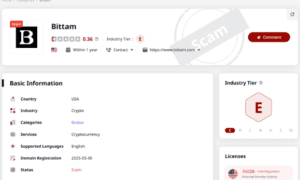It’s no secret that Real Estate Investment Trusts (REITs) have become an increasingly popular investment option over the past decade.
With the rise of digital real estates platforms such as Fundrise and traditional REIT ETFs like Vanguard REIT (VNQ), investors have many options when it comes to investing in real estate.
But which option is the best for investors looking to invest? This blog post will compare Fundrise vs VNQ to help you decide which is best.
What Is a REIT?
A Real Estate Investment Trust (REIT) is an investment vehicle that allows investors to pool their money to buy, manage, and operate income-producing real estate.
REITs allow investors to invest in commercial or residential real estate without purchasing the property directly. By pooling their resources, investors can access various properties that may have been too expensive for them to purchase.
REITs typically offer high dividend yields, making them attractive investments for those seeking to generate income from their portfolio. They also allow investors to diversify their portfolios by investing in different types of real estate.
Additionally, REITs are often less volatile than stocks and provide more liquidity than direct real estate investments.
To qualify as a REIT, at least 90% of taxable income will be distributed to shareholders as dividends. In addition, REITs allow investors to gain exposure to a large number of real estate assets around the world.
What Is a Fundrise eREIT?
The Fundrise eREIT is an open-ended trust composed of multiple commercial and residential properties owned by the company. Fundrise’s eREIT is a relatively new product in the market that has generated a great deal of attention and interest in the real estate space.
The company boasts of its ability to provide investors with access to a diversified portfolio of high-quality investments across multiple asset classes and geographical locations.
Fundrise eREITs offer investors an attractive option for diversification and are more tax-efficient than traditional REITs. Additionally, Fundrise allows investors to manage their investments online and provides them with customizable performance analytics to track their investments.
Fundrise has made many of its eREITs available over the years through a new provision in Regulation. This allows non-accredited investors to purchase up to $5 million worth of security in 12 months.
This new provision has allowed platforms like Fundrise that crowdfund real estate to emerge, creating more opportunities for investment and a new concept for the non-traded REIT structure.
Publicly Traded REITs vs Non-Traded REITs
Regarding REITs, there are two distinct categories: Publicly Traded REITs (such as Vanguard REIT VNQ) and Non-Traded REITs (such as Fundrise). Both types offer investors access to real estate investments, but some key differences should be considered when deciding the best option.
Publicly Traded REITs, such as Vanguard VNQ, are traded on a stock exchange, allowing investors to buy and sell shares just like they would any other stock. This makes them more liquid than Non-Traded REITs and gives investors greater flexibility.
However, the downside is that they often have higher fees, making it harder to maximize returns. Non-Traded REITs like Fundrise are not traded on a stock exchange. Instead, they are offered directly to investors and can only be sold back to companies at the time of sale.
While this limits liquidity, the fees associated with Non-Traded REITs are generally much lower than those of Publicly Traded REITs. Fundrise returns are higher than Vanguard VNQ, although these returns depend heavily on market conditions.
Ultimately, it’s essential to research and determines which type of REIT best meets your financial goals. For example, a Publicly Traded REIT may be better if you seek greater liquidity.
However, suppose you’re willing to accept a reduced level of liquidity in exchange for potentially higher fundrise returns. In that case, a Non-Traded REIT such as Fundrise may be a better option. But reading a fundrise review can help you decide which option is right for you.
Is Vanguard REIT a Better Investment?
It is crucial to grasp the distinction between Fundrise and other publicly traded investments, such as this Vanguard REIT.
Fundrise is a one-of-a-kind real estate investment, whereas most traditional REITs consist of real estate that has already been bought.
A significant benefit of investing with VNQ is that you can sell your stake whenever possible. However, with Fundrise eREITs, you will not be able to access your money until a specific time has elapsed.
An eREIT allows investors to pool their money together to access a growing real estate portfolio. Fundrise can then add new deals to the portfolio that it scouts out.
Fundrise Alternatives
If one reason or another, Fundrise and VNQ do not meet your needs in terms of your investment priorities, you can help to be armed with other Fundrise competitors.
- DiversyFund
DiversyFund offers investments that help diversify your portfolio. In addition, they offer a real estate growth fund which is perfect for individuals looking to get exposure to the real estate market without the large upfront investment.
- Crowdstreet
Crowdstreet allows investors to access direct commercial real estate investments through their online marketplace. They provide access to high-quality deals and can help diversify your portfolio with office, retail, and industrial property investments.
The Verdict: Fundrise vs Vanguard
When considering which Fundrise or Vanguard REIT (VNQ) is the better investment, it’s essential to consider factors such as liquidity, returns, and fees.
Fundrise offers a more diverse portfolio of real estate investments and lower fees than VNQ, making it more attractive for investors who want higher returns with a lower risk.
Additionally, Fundrise has no minimum investment amount, making it the better option for those looking to start small. With its solid performance and low fees, Fundrise is the better option for investors.
If you’d like to get started with Fundrise, Click here.



































